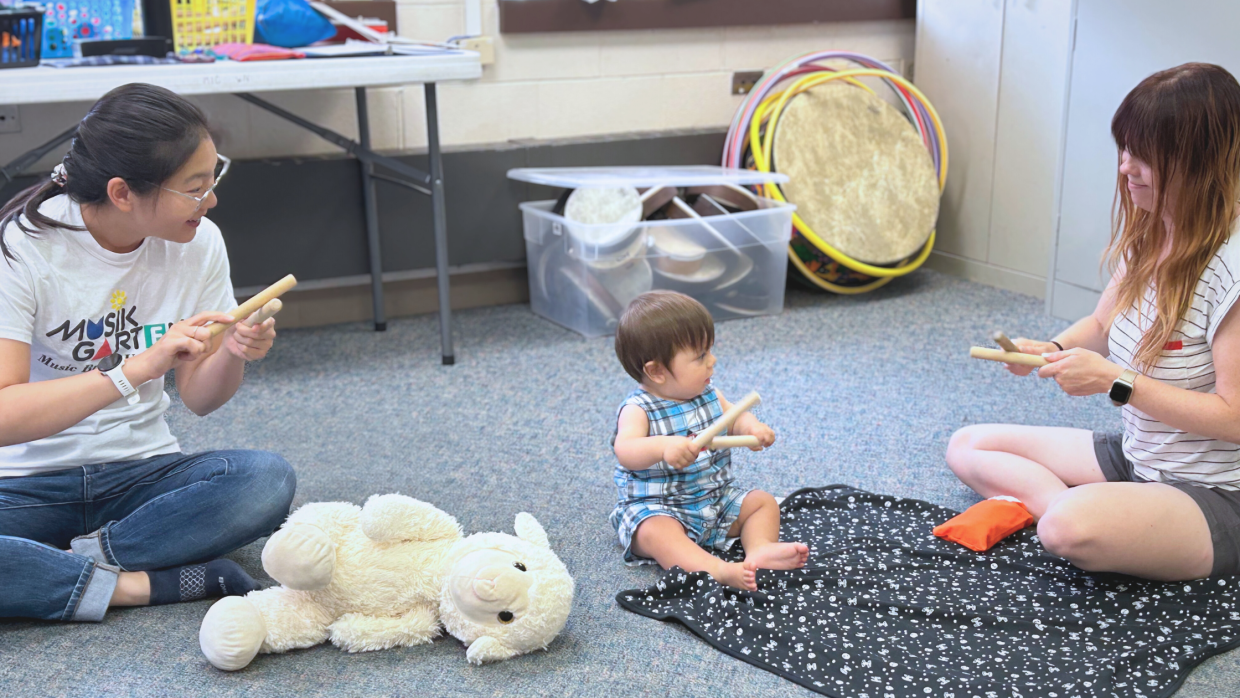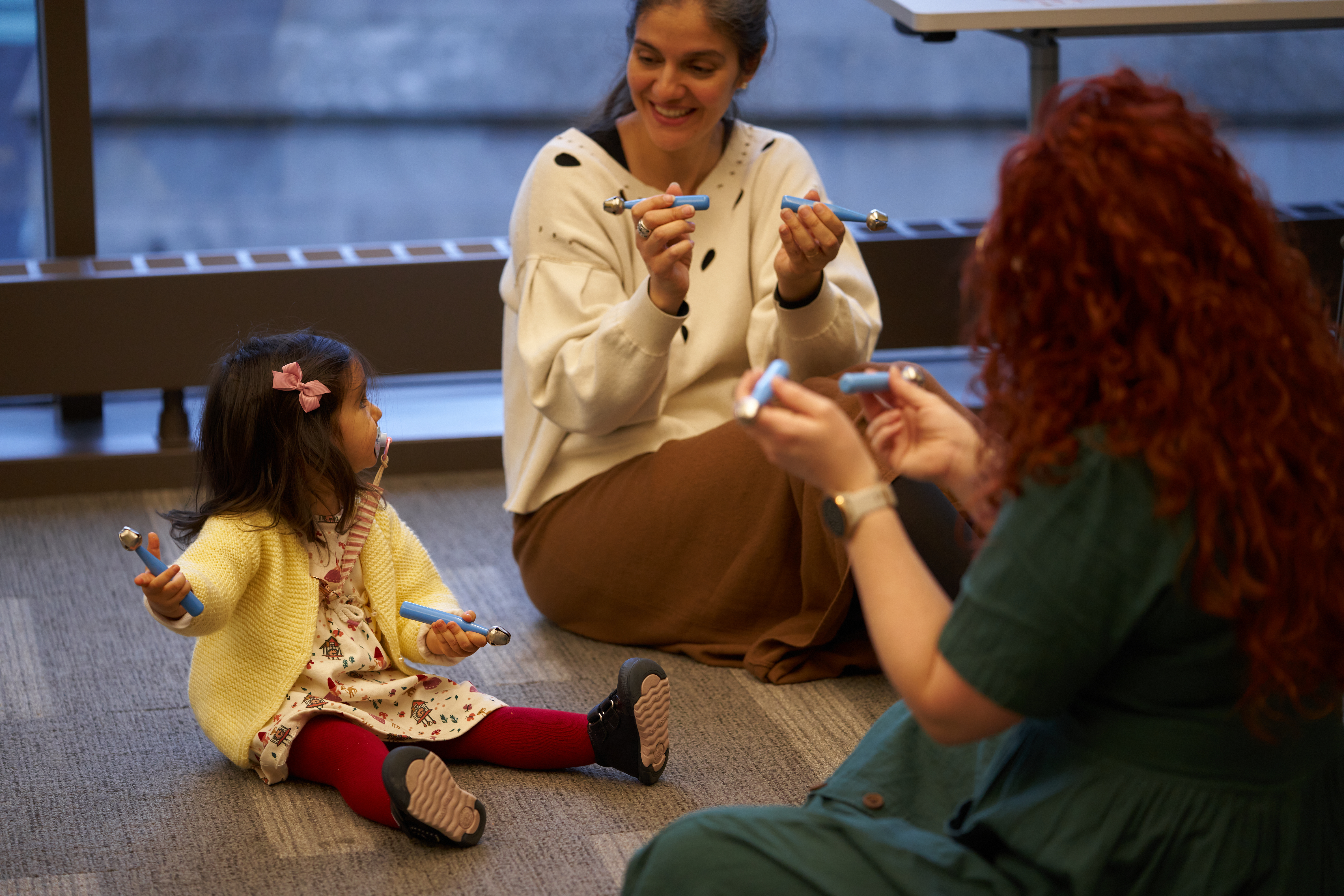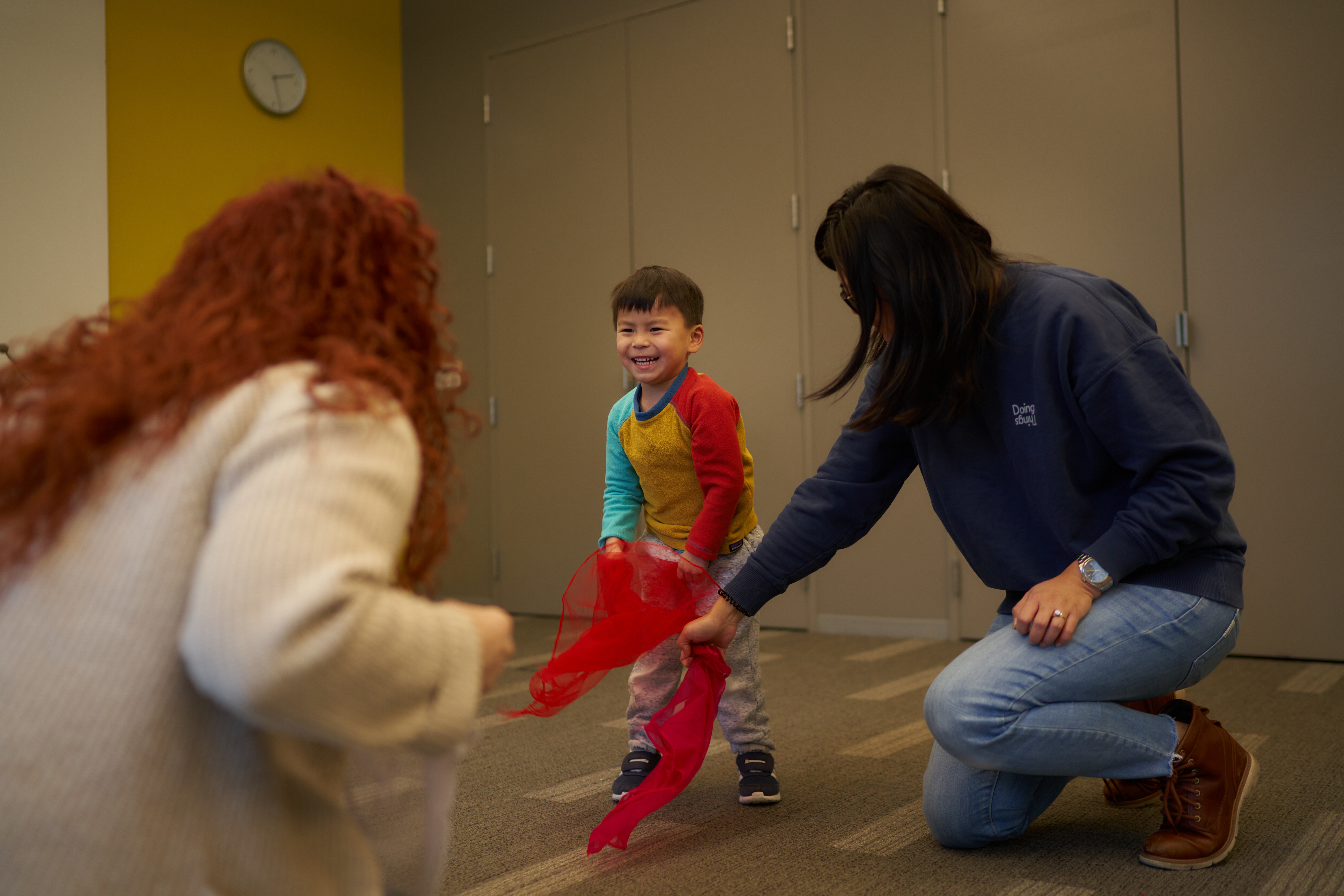How Music Classes for Kids Support Early Learning

April 18th, 2025
If you're exploring options to enhance your child’s early development, music classes are one of the few activities that target cognitive, emotional, physical, and social development—all at once. Backed by decades of research, Musikgarten classes are designed to do far more than entertain.
In the first five years of life, a child’s brain forms over one million new neural connections per second. During this period of rapid development, activities that combine movement, sound, and interaction can have a measurable impact on everything from language acquisition to emotional regulation and social readiness.
How Music Classes for Kids Support Early Learning
- Boosts Cognitive Skills from the Start
- Builds Language and Literacy
- Helps Kids Express and Understand Feelings
- Develops Coordination and Motor Skills
- Supports Social Skills

How Music Supports Early Childhood Development
Boosts Cognitive Skills from the Start
Early exposure to music enhances brain development, boosting memory, attention span, and pattern recognition. These foundational skills support success in core areas like reading, math, and problem-solving.
Builds Language and Literacy
Music and rhythm help children develop language acquisition and early literacy. Through singing, chanting, and listening, children sharpen their communication and begin building a strong vocabulary.
Helps Kids Express and Understand Feelings
Music fosters emotional intelligence by giving children a creative outlet to express feelings and process experiences. Group music activities promote confidence, empathy, and social-emotional development.
Develops Coordination and Motor Skills
Whether dancing to a beat or playing simple percussion instruments, children improve fine and gross motor skills, balance, and physical coordination—supporting overall physical growth.
Supports Social Skills
Group classes naturally teach skills like taking turns, sharing, and cooperating. Children learn to engage with peers in a fun, supportive environment that sets them up for success in preschool and beyond.

Music Classes Solve Real-World Parenting Challenges
Trouble Engaging in Traditional Learning Environments
Conventional learning environments can be overwhelming for little learners. That’s where music classes for preschoolers and toddlers shine. These classes are intentionally designed to offer short, engaging segments that are appropriate for their developmental stage.
Delayed Speech or Language Concerns
For children who aren’t yet speaking or are behind on speech milestones, music provides an alternative path to engage with language in a non-pressured way. Melody, rhythm, and repetition help build the foundation for stronger communication skills.
Emotional Regulation
Young children often lack the words to express what they’re feeling. Music offers a safe and creative outlet for emotional processing. Through singing, instrument play, and expressive movement, kids can explore and release emotions in healthy ways. Over time, they also learn to recognize emotions in themselves and others.
Kids music classes are more than just a fun activity—they’re a powerful developmental tool. They support language growth, motor coordination, emotional regulation, and social confidence, all during the years when a child’s brain is most open to learning.
Why Parents Choose Musikgarten at the Music Institute of Chicago
Musikgarten® at the Music Institute of Chicago offers research-based, age-appropriate music classes for babies, toddlers, and preschoolers. Each class is thoughtfully designed to nurture your child’s development in a fun, supportive environment.
- Classes available at multiple Chicagoland locations (Evanston, Winnetka, Lake Forest, Chicago)
- Taught by experienced early childhood music teachers
- A joyful introduction to lifelong music education
Ready to Get Started?
Introduce your child to the lifelong benefits of music with Musikgarten®. Classes are available in fall and spring (15 week semesters) and summer (6 week session) at multiple MIC campus locations.
